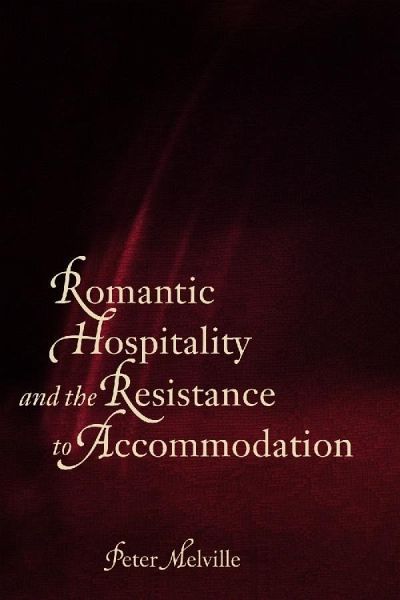
Romantic Hospitality and the Resistance to Accommodation
Versandkostenfrei!
Versandfertig in über 4 Wochen
89,99 €
inkl. MwSt.
Weitere Ausgaben:

PAYBACK Punkte
45 °P sammeln!
What does hospitality have to do with Romanticism? What are the conditions of a Romantic welcome? Romantic Hospitality and the Resistance to Accommodation traces the curious passage of strangers through representative texts of English Romanticism, while also considering some European philosophical "pre-texts" of this tradition. From Rousseau's invocation of the cot-less Carib to Coleridge's reception of his Porlockian caller, Romanticisms encounters with the "strange" remind us that the hospitable relation between subject and Other is invariably fraught with problems. Drawing on recent theorie...
What does hospitality have to do with Romanticism? What are the conditions of a Romantic welcome? Romantic Hospitality and the Resistance to Accommodation traces the curious passage of strangers through representative texts of English Romanticism, while also considering some European philosophical "pre-texts" of this tradition. From Rousseau's invocation of the cot-less Carib to Coleridge's reception of his Porlockian caller, Romanticisms encounters with the "strange" remind us that the hospitable relation between subject and Other is invariably fraught with problems. Drawing on recent theories of accommodation and estrangement, Peter Melville argues that the texts of Romantic hospitality (including those of Rousseau, Kant, Coleridge, and Mary Shelley) are often troubled by the subject's failure to welcome the Other without also exposing the stranger to some form of hostility or violence. Far from convincing Romantic writers to abandon the figure of hospitality, this failure invites them instead to articulate and theorize a paradoxical imperative governing the subject's encounters with strangers: if the obligation to welcome the Other is ultimately impossible to fulfill, then it is also impossible to ignore. This paradox is precisely what makes Romantic hospitality an act of responsibility. Romantic Hospitality and the Resistance to Accommodation brings together the wide-ranging interests of hospitality theory, diet studies, and literary ethics within a single investigation of visitation and accommodation in the Romantic period. As re-visionary as it is interdisciplinary, the book demonstrates not only the extent to which we continue to be influenced by Romantic views of the stranger but also, more importantly, what Romanticism has to teach us about our own hospitable obligations within this heritage.












